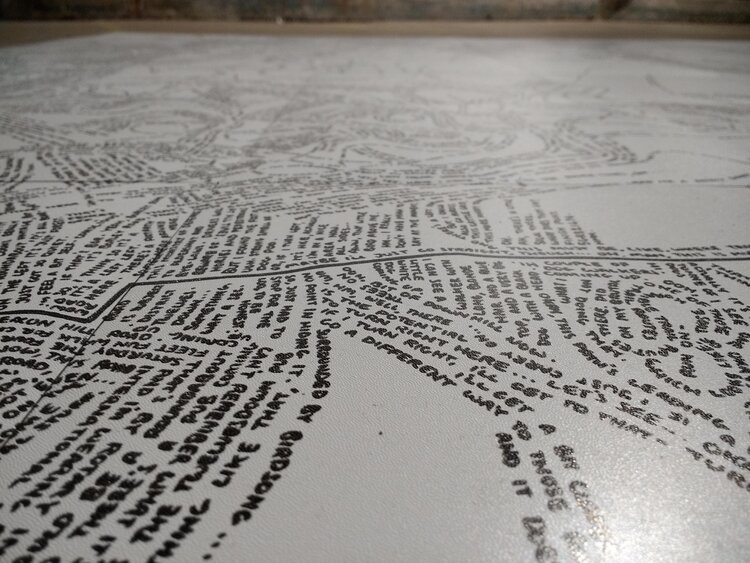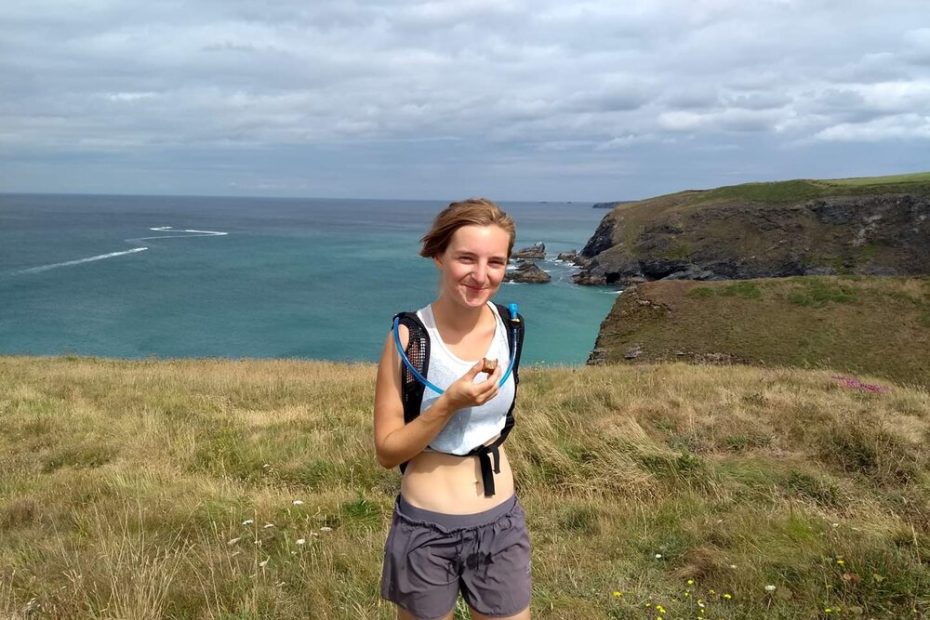Beth is a recent BA(Hons) Fine Art graduate from Falmouth University. Her artistic practice revolves around the anxiety and inevitability of climate crisis, exploring the inextricable links between place and climate health.

An organic body, attacked by the forces of modern civilization, the idea of ‘place’ has become a metaphor for both the world it describes, and the society that describes it. Considering the concept of Donna Haraway’s ‘plantationocene’ and Auge’s ‘non-place’ as ways to paint the modern landscape and the colonial ideas that it might represent, Beth is currently working to engage in various place-making practices, with the hopes of opening non-anthropocentric dialogues about the climate crisis.
As a long-distance runner and a keen writer, she is inspired by psychogeography. Trying to open up this androcentric term, she watches as Iain Sinclair, Rebecca Solnit, and Chris Kraus traverse their respective worlds, probing for memories, life, and history, like beachcombers in search of rare shells.
Collecting fragments of her own from this metaphorical beach, where climate crisis looms overhead like a tsuinami at breaking point, Beth uses made-up stories, snippets of conversations, excerpts from dreams, and anecdotes from journeys undertaken through this barren landscape that was once the “English Countryside”. Stitching these together through combining voice recordings, writing, and stop-motion animation, she intends to create a form of “metaphorical rewilding”, replenishing this extractive plantationocene with memories, feelings, and subjective experiences.
Inspired by Dark Mountain’s manifesto, Uncivilization, Beth is trying to find a kind of “uncivilized” art; something where the ignored voices of non-human entities push through and tell their own stories. Text crawls up walls, haunts lobster pots, and swims along the studio floor like a shoal of fish. Unstoppable words form murmurations, viruses, and insects, and attack the too-clean, sanitized space that surrounds it.
Her artistic practice revolves around the anxiety and inevitability of climate crisis, exploring the inextricable links between place and climate health.
An organic body, attacked by the forces of modern civilization, the idea of ‘place’ has become a metaphor for both the world it describes, and the society that describes it. Considering the concept of Donna Haraway’s ‘plantationocene’ and Auge’s ‘non-place’ as ways to paint the modern landscape and the colonial ideas that it might represent, Beth is currently working to engage in various place-making practices, with the hopes of opening non-anthropocentric dialogues about the climate crisis.
As a long-distance runner and a keen writer, she is inspired by psychogeography. Trying to open up this androcentric term, she watches as Iain Sinclair, Rebecca Solnit, and Chris Kraus traverse their respective worlds, probing for memories, life, and history, like beachcombers in search of rare shells.
Collecting fragments of her own from this metaphorical beach, where climate crisis looms overhead like a tsuinami at breaking point, Beth uses made-up stories, snippets of conversations, excerpts from dreams, and anecdotes from journeys undertaken through this barren landscape that was once the “English Countryside”. Stitching these together through combining voice recordings, writing, and stop-motion animation, she intends to create a form of “metaphorical rewilding”, replenishing this extractive plantationocene with memories, feelings, and subjective experiences.
Inspired by Dark Mountain’s manifesto, Uncivilization, Beth is trying to find a kind of “unicivilized” art; something where the ignored voices of non-human entities push through and tell their own stories. Text crawls up walls, haunts lobster pots, swims along the studio floor like a shoal of fish. Unstoppable words form mermerations, viruses, insects, and attack the too-clean, sanitized space that surrounds it.
